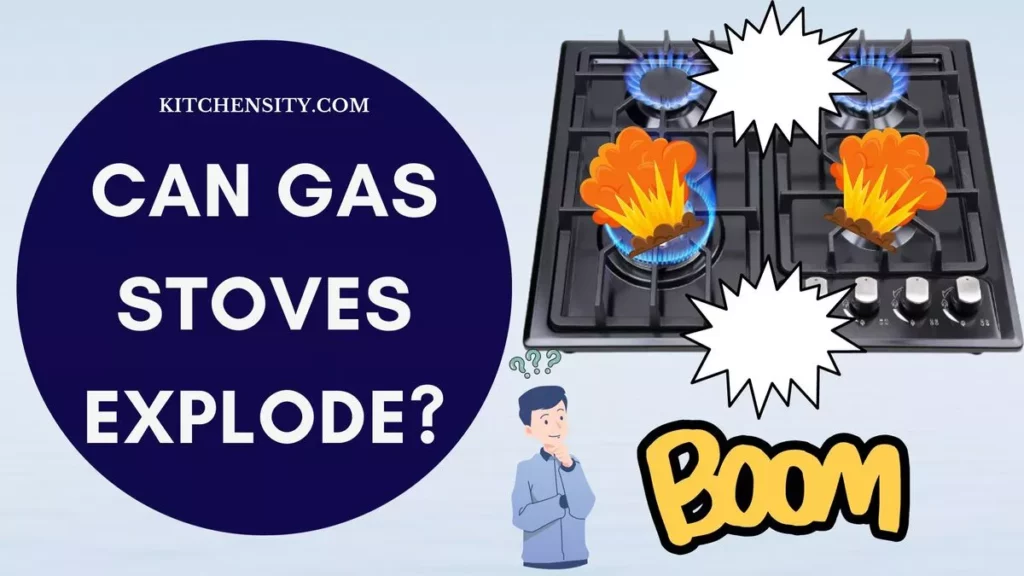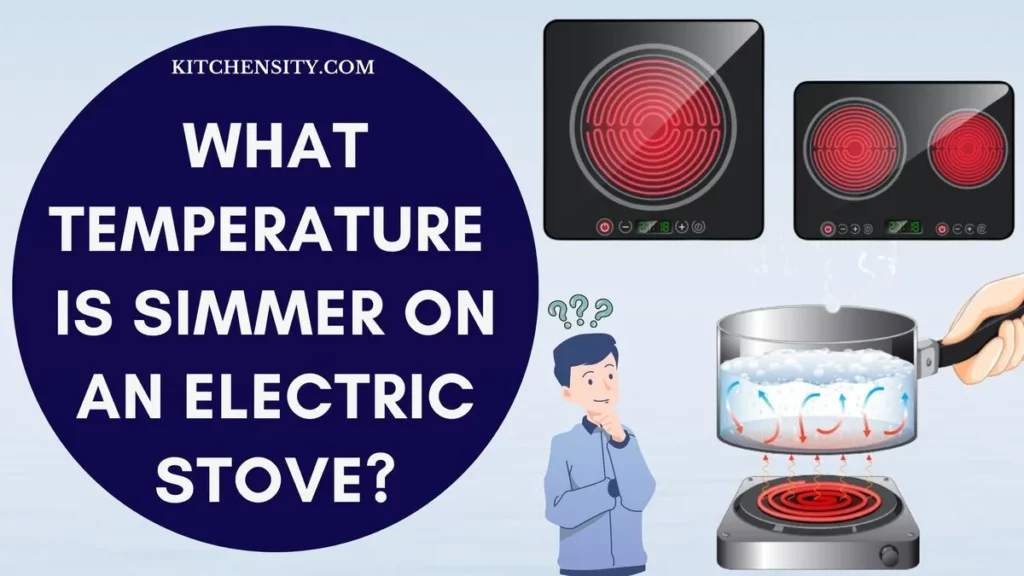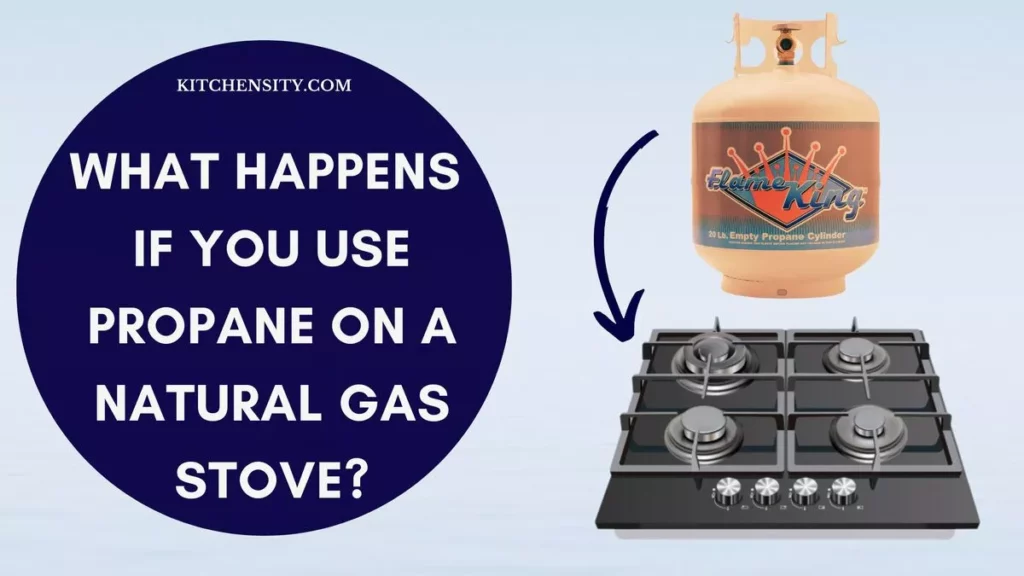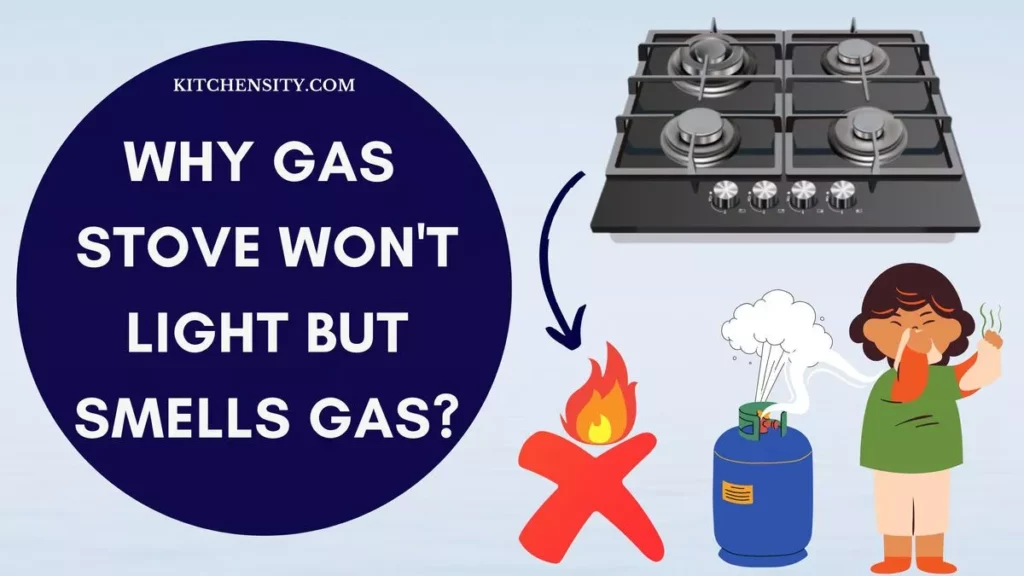Gas stoves are a common and convenient appliance in many households, used for cooking meals efficiently. However, there is a lingering concern among people: Can gas stoves explode?
In this discussion, we will explore the potential risks associated with gas stoves and shed light on whether these appliances can truly explode.
Understanding the safety aspects of gas stoves is essential for every homeowner, ensuring a secure cooking environment. Let’s delve into the topic to uncover the truth behind the question.
Table of Contents
- 1 Can Gas Stoves Explode?
- 2 What Causes A Gas Stove To Explode? Causes Of Gas Explosion At Home
- 3 How Long Does It Take For A Gas Stove To Explode?
- 4 Can Leaving A Gas Stove On Cause An Explosion?
- 5 What Happens If You Leave The Gas Stove On All Night?
- 6 How To Prevent Gas Stove Explosions?
- 7 Should I Be Worried About A Gas Stove?
- 8 What Are The Risks Of A Gas Stove?
- 9 Can Gas Explode Without Fire?
- 10 Should I Open Windows If I Smell Gas?
- 11 Final Thoughts: Can Gas Stoves Explode?
- 12 Frequently Asked Questions (FAQs)
Can Gas Stoves Explode?
Yes, gas stoves can explode under specific conditions. When there’s a gas leak in an enclosed space and the leaked gas mixes with air in a specific ratio, it becomes highly flammable. If this mixture encounters an ignition source, such as a spark or open flame, it can result in an explosion.
However, it’s important to note that the likelihood of a gas stove exploding is relatively low if the stove is well-maintained, properly installed, and used according to safety guidelines. Modern gas stoves are equipped with safety features like automatic shut-off valves and thermocouples, which significantly reduce the risk of explosions.
To prevent such incidents, it’s crucial to ensure good ventilation, conduct regular maintenance checks, and be vigilant for any signs of gas leaks, such as the distinctive “rotten egg” smell. Immediate action, such as turning off the gas supply and ventilating the area, can greatly minimize the risk of a gas stove explosion.

Also Read – Can Electric Stoves Explode?
What Causes A Gas Stove To Explode? Causes Of Gas Explosion At Home
Gas stoves can potentially explode due to several factors, although it’s essential to note that these instances are rare and usually preventable. Here are the key causes of gas explosions at home:
- Gas Leaks: One of the primary causes of gas stove explosions is a gas leak. Odorless natural gas is intentionally scented with a distinct odor (often compared to rotten eggs) to help people detect leaks. If there is a leak in the gas line connecting the stove, the gas can accumulate in an enclosed space, leading to a dangerous explosion if ignited.
- Ignition Source: For a gas explosion to occur, there needs to be an ignition source. This can be anything from a spark caused by a faulty electrical switch or outlet, a pilot light in an older stove, or even static electricity. If there’s a significant gas leak and it encounters an ignition source, it can result in an explosion.
- Poor Ventilation: Inadequate ventilation in the kitchen can lead to the buildup of gas fumes. Without proper airflow to disperse the gas, it can accumulate in concentrated amounts. If these concentrated fumes come into contact with a spark or open flame, an explosion can happen.
- Faulty Appliances: Old or malfunctioning gas stoves can develop issues in their safety mechanisms, such as faulty thermocouples or automatic shut-off valves. If these safety features fail, the risk of a gas explosion increases significantly.
- Human Error: Sometimes, accidents occur due to human error, such as accidentally leaving a burner on, improperly connecting the gas supply, or using damaged gas lines. These errors can create a dangerous situation if not rectified promptly.
- Poor Maintenance: Regular maintenance of gas appliances is crucial. If a stove is not well-maintained, issues like clogged burners or damaged gas lines can go unnoticed. Over time, these problems can escalate and lead to a gas explosion.
It’s important to emphasize that with proper installation, regular maintenance, and vigilance, the risk of a gas stove exploding is significantly minimized. You should be aware of these potential risks and take necessary precautions to ensure the safe use of gas appliances in your home.
Also Read – How Long Can You Leave An Electric Stove On Without Risking A Fire?
How Long Does It Take For A Gas Stove To Explode?
It is essential to clarify that gas stoves do not have a predetermined timeframe after which they will explode. The potential for a gas stove to explode depends on various factors, including the presence of a gas leak, the concentration of gas in the surrounding area, the availability of an ignition source, and the overall condition of the stove and its safety mechanisms.
If there is a gas leak in the vicinity of a gas stove and the leaked gas accumulates to a certain concentration, the risk of an explosion increases. However, the time it takes for this to happen can vary widely based on factors such as the size of the leak, the ventilation in the area, and the rate at which the gas disperses into the surrounding air.
The critical factor leading to an explosion is the presence of an ignition source. If a spark, flame, or any other source of ignition comes into contact with the concentrated gas, it can lead to a sudden explosion. This ignition can occur immediately after the gas leak starts, or it might take some time, depending on the circumstances.
To reiterate, it is not a matter of a specific duration for a gas stove to explode. Instead, the focus should be on prevention: ensuring proper installation, regular maintenance, prompt detection and repair of gas leaks, and following safety guidelines to minimize the risk of a gas stove explosion.
Also Read – How Hot Do Electric Stove Burners Get?
Can Leaving A Gas Stove On Cause An Explosion?
Leaving a Gas Stove On unattended poses significant risks and can potentially lead to an explosion. If you leave a gas stove on without a flame, gas continues to flow, accumulating in the surrounding environment. Over time, this accumulation of gas can reach a dangerous concentration, especially if the area is poorly ventilated.
If, during this period, an ignition source such as a spark from an electrical switch, a pilot light in another appliance, or even static electricity comes into contact with the concentrated gas, it can lead to a sudden explosion. The result can be devastating, causing significant damage to your property and posing a severe risk to your safety and the safety of those around you.
To ensure your safety and prevent such incidents, it is crucial always to double-check your gas stove before leaving the kitchen. Make it a habit to turn off the stove completely, ensuring that the flame is extinguished and the gas supply is cut off. Additionally, invest in a gas stove with modern safety features like automatic shut-off valves, which can add an extra layer of protection, even if you accidentally leave the stove on.
Remember, your vigilance and responsible actions play a crucial role in preventing potential disasters. Taking a few moments to ensure your gas stove is turned off can save you from the risks associated with leaving it unattended. Stay safe and prioritize your well-being and that of others in your home.
Also Read – Why Is My Electric Stove Burner Stays On High?
What Happens If You Leave The Gas Stove On All Night?
Leaving a gas stove on all night can have serious consequences and pose significant risks to your safety and the safety of those around you. If you leave the gas stove on without a flame, gas continues to flow and accumulate in the surrounding environment. Here’s what can happen if you leave the gas stove on all night:
- Gas Accumulation: Throughout the night, gas will continue to escape from the open burner, filling the air in your home with natural gas. Natural gas is odorless and colorless, making it difficult to detect without the distinctive odorant added by utility companies for safety reasons.
- Risk Of Asphyxiation: Inhaling a high concentration of natural gas can lead to asphyxiation, displacing oxygen in the air. Breathing in an environment with reduced oxygen levels can cause dizziness, shortness of breath, nausea, and in extreme cases, loss of consciousness or even death.
- Risk Of Fire Or Explosion: If the gas concentration in the room reaches a critical level and an ignition source, such as a spark from an electrical device, a pilot light in another appliance, or static electricity, comes into contact with the gas, it can lead to a sudden fire or explosion. This is a highly dangerous scenario that can cause significant damage to your property and put lives at risk.
- Health Implications: In addition to the immediate risks of asphyxiation and explosion, exposure to natural gas over an extended period can have adverse health effects, including headaches, fatigue, and respiratory problems.
- Environmental Impact: Leaving a gas stove on all night also contributes to unnecessary energy waste and adds to your utility bills, impacting both your finances and the environment.
To prevent these risks, it is crucial always to double-check your gas stove before leaving the kitchen or going to bed. Make sure to turn off the stove completely, ensuring that the flame is extinguished and the gas supply is cut off.
By taking these precautions, you can avoid potentially life-threatening situations and ensure the safety and well-being of yourself and those in your household.
Also Read – Why Gas Stove Won’t Light But Smells Gas?
How To Prevent Gas Stove Explosions?
Preventing gas stove explosions is essential for the safety of your household. By following these steps, you can significantly reduce the risks associated with gas stoves:
- Proper Installation: Ensure your gas stove is installed by a certified technician. Proper installation includes secure connection to the gas supply line, appropriate venting, and adherence to safety regulations. Avoid DIY installations to prevent potential gas leaks.
- Regular Maintenance: Schedule annual inspections with a qualified professional. Regular maintenance checks for gas leaks, burner functionality, and safety features. Promptly repair any issues identified during inspections to prevent them from escalating.
- Ventilation: Maintain good ventilation in your kitchen. Install exhaust fans and open windows to ensure proper airflow. Adequate ventilation helps disperse gas fumes, reducing the risk of ignition.
- Gas Leak Detection: Use a gas leak detector in your kitchen. These devices can quickly identify even minor gas leaks, allowing you to address the issue before it becomes dangerous. Install detectors near the stove and in other areas where gas appliances are used.
- Smell For Gas: Familiarize yourself with the smell of natural gas. A distinctive “rotten egg” odor is added to natural gas for easy detection. If you smell gas, even if it’s faint, immediately turn off the stove, open windows, evacuate the area, and contact your gas utility company.
- Turn Off When Not In Use: Develop a habit of turning off the gas stove when not in use, even if you plan to return shortly. Always check to ensure all burners are fully extinguished after cooking. Double-check before leaving the kitchen or going to bed.
- Use Cookware Wisely: Use flat-bottomed cookware that sits securely on burners. Unstable or oversized pots and pans can cause uneven flames and lead to gas leaks. Also, avoid using foil or other materials to cover burners, as they can trap gas and cause a buildup.
- Keep Flammable Items Away: Keep flammable materials, such as paper towels, dishcloths, and curtains, away from the stove. A gas flame can ignite these items, leading to a fire.
- Educate Household Members: Ensure everyone in your household is aware of gas safety practices. Teach family members, especially children, about the risks associated with gas stoves and the importance of proper usage and precautions.
- Emergency Preparedness: Have an emergency plan in place. Everyone in your household should know what to do in case of a gas leak, including evacuation procedures and how to contact emergency services.
Also Read – What Happens If You Use Propane On A Natural Gas Stove?
Should I Be Worried About A Gas Stove?
Being cautious and aware of the potential risks associated with a gas stove is essential, but there is no need for excessive worry if you follow proper safety guidelines and take necessary precautions. Modern gas stoves come equipped with various safety features designed to minimize the risks of accidents, including gas leaks and explosions.
Reasons Not to Worry
- Advanced Safety Features: Newer gas stoves are equipped with safety mechanisms such as automatic shut-off valves and thermocouples. These features are designed to detect gas leaks and extinguish the flame if necessary, significantly reducing the risk of accidents.
- Regular Maintenance: Regular inspections and maintenance by certified technicians can identify and address potential issues before they escalate. By scheduling annual check-ups, you ensure that your gas stove remains in proper working condition.
- Personal Responsibility: Taking personal responsibility and following safety guidelines, such as proper installation, good ventilation, and turning off the stove when not in use, can greatly minimize the risks associated with gas stoves.
- Gas Odorant: Natural gas is odorless, but utility companies add a distinctive odorant (often compared to rotten eggs) to help detect leaks. If you can smell gas, it alerts you to a potential issue, allowing you to take immediate action.
- Education And Awareness: Educating yourself and your household members about gas safety practices, including recognizing the signs of a gas leak and knowing what to do in case of an emergency, empowers you to respond effectively.
Also Read – Master Medium Heat On A Stove
Precautions To Take
- Install A Gas Detector: Consider installing a gas detector in your kitchen. These devices can alert you to even small gas leaks, providing an extra layer of safety.
- Regularly Ventilate Your Kitchen: Maintain good ventilation in your kitchen by using exhaust fans and opening windows. Proper airflow helps disperse gas fumes.
- Turn Off The Stove When Not In Use: Make it a habit to turn off the stove completely after cooking. Ensure all burners are extinguished, even if you plan to return shortly.
- Trust Certified Professionals: For installations, repairs, and maintenance, rely on certified technicians. Avoid DIY attempts, as improper installations can lead to safety hazards.
By being mindful, proactive, and informed, you can enjoy the convenience of a gas stove without unnecessary worry.
Also Read – What Temperature Is Simmer On An Electric Stove?
What Are The Risks Of A Gas Stove?
Gas stoves, while convenient and widely used, come with several inherent risks. Understanding these risks is crucial for ensuring the safety of your household. Here are the key risks associated with gas stoves:
- Gas Leaks: One of the most significant risks is the potential for gas leaks. Natural gas, used in most stoves, is odorless. To aid in leak detection, utility companies add a distinctive, rotten-egg-like odorant to the gas. However, if a leak occurs and goes undetected, it can lead to a dangerous buildup of gas in your home.
- Explosions And Fires: If a gas leak encounters an ignition source, such as a spark from an electrical device or a pilot light in another appliance, it can lead to a sudden explosion or fire. Gas explosions can cause significant damage to property and pose serious threats to human life.
- Asphyxiation: In the absence of proper ventilation, gas stoves can consume oxygen in the room, leading to reduced oxygen levels. Prolonged exposure to low oxygen levels can cause asphyxiation, leading to dizziness, shortness of breath, and, in severe cases, loss of consciousness or death.
- Carbon Monoxide Poisoning: Incomplete combustion of gas can produce carbon monoxide (CO), a colorless, odorless gas. Breathing in CO can lead to poisoning, causing symptoms like headaches, dizziness, nausea, and even death in high concentrations.
- Burn Injuries: Accidental burns are common risks associated with gas stoves. Users can accidentally touch hot surfaces or come into contact with open flames, leading to minor to severe burn injuries.
- Flammable Items Ignition: Flammable materials, such as paper towels, curtains, or dishcloths, placed too close to a gas stove, can catch fire easily if they come into contact with an open flame or a hot burner.
- Malfunctions And Wear: Over time, gas stoves may develop malfunctions or wear and tear in safety features, such as thermocouples and automatic shut-off valves. These malfunctions can compromise the stove’s safety, leading to potential hazards.
- Improper Installation: Incorrect installation of gas stoves, especially by non-professionals, can result in gas leaks or other safety issues. Proper installation is critical to ensuring the stove operates safely.
- Potential For Accidental Ignition: Accidental ignition due to a stray spark or static electricity can occur when there’s a gas leak, leading to a fire or explosion.
- High Utility Bills: Leaving a gas stove on for extended periods, even if not in use, can lead to higher utility bills due to unnecessary gas consumption.
Also Read – Can You Replace Burners On An Electric Stove?
Can Gas Explode Without Fire?
Yes, gas can explode without a visible flame under specific circumstances. When gas leaks into an enclosed space and mixes with the air, it forms a flammable gas-air mixture. If this mixture reaches a critical concentration and encounters an ignition source, even something as small as a spark or static electricity, it can lead to an explosion.
The explosion occurs because the gas-air mixture ignites, releasing a significant amount of energy in a rapid burst, causing an explosion even without an open flame present at the initial leak point.
It’s important to note that gas explosions without visible flames are rare but can happen in situations where there are substantial gas leaks and the right conditions for ignition are met. Proper ventilation, regular maintenance, and prompt detection and repair of gas leaks are essential to prevent such incidents.
Also Read – Does A Gas Stove Need A Dedicated Circuit?
Should I Open Windows If I Smell Gas?
Yes, if you smell gas indoors, it is crucial to open windows immediately. Natural gas is odorless, but utility companies add a distinctive sulfur-like odorant (often described as smelling like rotten eggs) to help detect leaks. If you detect this smell, it indicates a gas leak in your vicinity.
Here’s what you should do if you smell gas:
- Open Windows And Doors:
- Open all windows and doors in the area to allow fresh air to enter and help disperse the gas fumes.
- Ensure good ventilation to reduce the concentration of gas in the air.
- Do Not Use Electrical Devices: Avoid using any electrical devices, including light switches, appliances, or phones, as they can create sparks that might ignite the gas.
- Do Not Create Flames Or Sparks: Refrain from lighting matches, candles, or lighters, and do not smoke. Any open flame or spark can cause a dangerous explosion.
- Evacuate The Area:
- If the smell of gas is strong and pervasive, evacuate the building immediately.
- Use a neighbor’s phone or a mobile phone outside the building to call your gas company’s emergency line or the emergency services number to report the gas leak.
- Wait Outside: Wait outside a safe distance away from the building until the gas company or emergency responders confirm it is safe to re-enter.
- Do Not Attempt Repairs: Do not attempt to repair the gas leak yourself. Leave it to trained professionals to assess and fix the issue.
Taking these immediate actions when you smell gas can help ensure your safety and the safety of those around you. It is always better to err on the side of caution and report any suspicions of a gas leak promptly.
Also Read – Orange Flame On The Gas Stove: Causes And Fixes
Final Thoughts: Can Gas Stoves Explode?
In conclusion, understanding the safety dynamics of gas stoves is crucial for your peace of mind in the kitchen. While the fear of gas stoves exploding is valid, modern appliances are equipped with multiple safety features. As long as you follow proper usage guidelines, conduct regular maintenance, and remain vigilant for any signs of gas leaks, the risk of an explosion is significantly minimized.
Remember, your safety is paramount. By adopting cautious habits, such as turning off the stove when not in use, ensuring good ventilation, and promptly addressing gas odors, you can confidently enjoy the convenience of your gas stove without unnecessary worry. Stay informed, stay cautious, and cook with confidence!
Also Read – Are Natural Gas And Propane Interchangeable?
Frequently Asked Questions (FAQs)
-
Can A Gas Stove Explode If I Leave It On For Too Long?
No, gas stoves are designed with safety features like automatic shut-off valves. If the flame is extinguished, the gas supply is cut off, preventing potential explosions.
-
What Should I Do If I Smell Gas In My Kitchen?
If you detect a gas leak, immediately open windows, leave the premises, and contact your gas company. Do not use any electronic devices or create sparks that could ignite the gas.
-
Is It Safe To Use A Gas Stove In A Small Kitchen?
Yes, gas stoves can be used in small kitchens. However, proper ventilation is essential. Install exhaust fans or open windows to ensure adequate airflow.
-
How Often Should I Have My Gas Stove Inspected?
It’s recommended to have your gas stove inspected annually by a certified technician. Regular maintenance can identify and address potential issues before they become dangerous.
-
Can I Use A Gas Stove During A Power Outage?
Yes, gas stoves can be used during power outages as they do not rely on electricity for ignition. However, ensure proper ventilation and safety precautions are in place.
🔧 Stove Expert | 🔥 Gas Guru | 🏠 DIY Enthusiast | 🎨 Painter Extraordinaire
John Davis is your go-to source for all things stoves, from expert repairs to maintenance tips. With a deep understanding of gas systems, including natural and propane, John ensures your kitchen stays cooking safely. His passion for DIY home and kitchen projects shines through his stunning paint transformations. Trust John to bring warmth and functionality to your home, one stove at a time.






